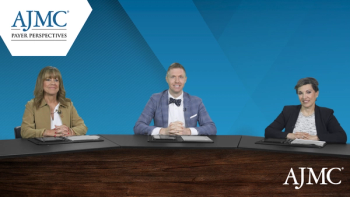
Key opinion leaders discuss the most significant unmet needs in the current treatment landscape for multiple sclerosis.

Key opinion leaders discuss the most significant unmet needs in the current treatment landscape for multiple sclerosis.
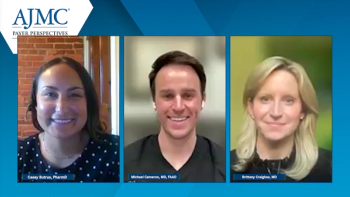
Key opinion leaders provide a concise overview of the atopic dermatitis (AD) treatment landscape, focusing on the role of topical therapy, and highlight the current unmet needs in AD management.

Casey Butrus, PharmD; Michael Cameron, MD, FAAD, and Brittany Craiglow, MD, address the critical clinical challenges in treating atopic dermatitis (AD) patients and discuss current trends in biologics use for AD.
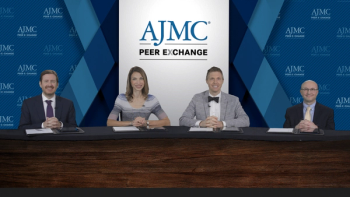
Medical experts highlight unmet needs in the PNH treatment landscape and considerations for utilizing eculizumab.

Dr Haumschild continues leading a discussion surrounding management of PNH, emphasizing the impact of complement inhibitors.

Heidi Crayton, MD, and Maria Lopes, MD, discuss the limitations of using relapse rates as a critical endpoint in trials for patients with non-relapsing secondary progressive multiple sclerosis experiencing disease progression without relapse, explore methods to assess therapeutic benefit in this population, examine the relationship between cost of care and disease severity, and highlight the impact of decreased mobility and cognition on MS patients along with strategies for improvement.

Heidi Crayton, MD, and Maria Lopes, MD, discuss the impact of multiple sclerosis on patients, families, and caregivers, differentiate relapsing forms (relapsing-remitting and primary progressive) from non-relapsing forms (non-relapsing secondary progressive) in clinical practice, and highlight the key pathophysiological features of relapsing multiple sclerosis and the impact of progression independent of relapse activity (PIRA) after an initial demyelinating event.
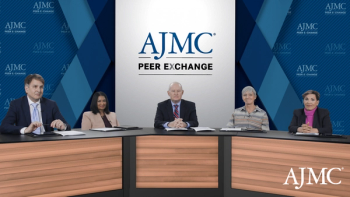
A comprehensive discussion on the value of therapies for Alzheimer disease based on cost vs outcome, and unmet needs in the overall treatment landscape.

Experts provide their perspectives on clinical factors taken into consideration when deciding on a treatment plan for a patient with Alzheimer disease.

Dr Haumschild drives a discussion surrounding impactful PNH treatment strategies.

Key opinion leaders navigate barriers to optimal care for patients receiving treatment for PNH.
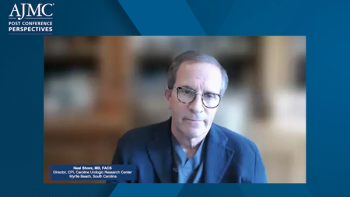
Neal Shore, MD, FACS, discusses the safety profiles reported across the nadofaragene firadenovec, SunRISe-1, and NURE-COMBO trials, highlighting any unexpected toxicities observed with these novel therapies for non-muscle-invasive and muscle-invasive bladder cancer. Additionally, he reviews key limitations of the study designs or patient populations that may impact the interpretation and generalizability of the results from these trials.

Neal Shore, MD, FACS, discusses how the SunRISe-1 trial design addresses the need for bladder-sparing treatment options for patients with BCG-unresponsive high-risk non-muscle-invasive bladder cancer (HR NMIBC) who are ineligible for or refuse radical cystectomy. He also contrasts the treatment approach and outcomes observed in the NURE-COMBO trial with the current standard neoadjuvant chemotherapy plus radical cystectomy regimen for muscle-invasive bladder cancer (MIBC), discussing how this chemoimmunotherapy combination may potentially expand treatment options for this patient population.

Experts on Alzheimer disease discuss how the introduction of disease-modifying therapies has impacted the treatment landscape.

The panel provides insights on the economic impact of advanced approaches for diagnosing Alzheimer disease, highlighting how payers approach increased costs.
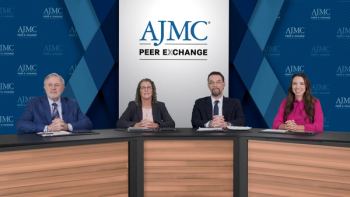
Panelists highlight the need for education and support to help clinicians appropriately prescribe prescription digital therapeutics (PDTs).

The panel discusses the challenges of delivering prescription digital therapeutics (PDTs) to patients, challenges caused by PDTs being considered behavioral health benefits, pharmacy benefits, medical benefits, and durable medical equipment benefits.

Medical experts illustrate the nature of hemolysis in PNH and characteristics unique to the disease state.

Dr. Haumschild drives a discussion providing an overview of PNH and pathology of the disease.

Diana Brixner, PhD, highlights the potential for prescription digital therapeutics (PDTs) to have impact in areas such as facilitating behavioral change for mental health conditions and strengthening adherence for complex disease states with intricate drug regimens.

Paul Jeffrey, PharmD, examines different contracting strategies that can help improve patient access to prescription digital therapeutics (PDTs).

Focusing on the diagnosis of Alzheimer disease, the panel discusses key diagnostic criteria, testing practices, and the role of genetic testing.

B. Joy Snider, MD, PhD, discusses the benefits of early diagnosis of Alzheimer disease and how it can impact the patient journey.

Medical experts identify key stakeholders within health plans who collaborate in the decision-making process for coverage, access, and benefit design related to prescription digital therapeutics.

Paul Jeffrey, PharmD, presents the findings of a study, which investigated patient engagement and clinical outcomes associated with the use of prescription digital therapeutics (PDTs) in the treatment of substance use disorders, and discusses the need for further research to advance the efficacy and value of PDTs in this field.

The expert panel offers comprehensive insights on the patient journey for people with Alzheimer disease, highlighting symptoms, challenges, and the diagnostic process.

The panel provides an overview of genetic factors associated with Alzheimer disease and the genetic mutations that contribute to the pathophysiology of the disease.

1) A medical urologist discusses the rationale and design of the SunRISe-1 phase 2 trial, which evaluates the combination of intravesical TAR-200 and systemic cetrelimab, as well as the TAR-200 and cetrelimab monotherapy arms, in patients with Bacillus Calmette-Guérin (BCG)-unresponsive high-risk non-muscle-invasive bladder cancer (HR NMIBC), focusing on key efficacy and safety endpoints.

Neal Shore, MD, FACS, discuss the key efficacy outcomes reported for nadofaragene firadenovec (ADSTILADRIN) in the phase 3 trial for patients with Bacillus Calmette-Guérin (BCG)-unresponsive non-muscle-invasive bladder cancer (NMIBC) and compare these long-term results to other bladder-preserving therapies in this population.

Panelists delve into the data and the cost-saving evidence required by payers to cover prescription digital therapeutics (PDTs), outline the decision-making process followed by payers, and share best practices observed in real-world to ensure the successful implementation of PDTs.

259 Prospect Plains Rd, Bldg H
Cranbury, NJ 08512
© 2025 MJH Life Sciences®
All rights reserved.
